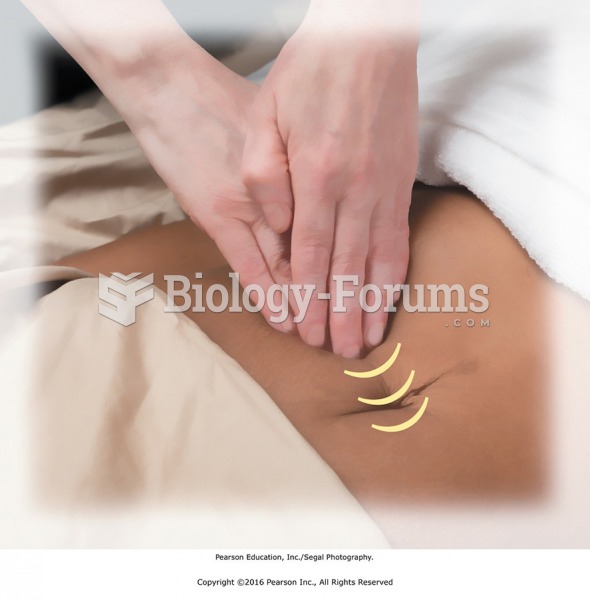|
|
|
Amoebae are the simplest type of protozoans, and are characterized by a feeding and dividing trophozoite stage that moves by temporary extensions called pseudopodia or false feet.
More than 150,000 Americans killed by cardiovascular disease are younger than the age of 65 years.
Street names for barbiturates include reds, red devils, yellow jackets, blue heavens, Christmas trees, and rainbows. They are commonly referred to as downers.
Hyperthyroidism leads to an increased rate of metabolism and affects about 1% of women but only 0.1% of men. For most people, this increased metabolic rate causes the thyroid gland to become enlarged (known as a goiter).
Certain chemicals, after ingestion, can be converted by the body into cyanide. Most of these chemicals have been removed from the market, but some old nail polish remover, solvents, and plastics manufacturing solutions can contain these substances.
 Traction is the application of a pulling force to maintain bone alignment during fracture healing. D
Traction is the application of a pulling force to maintain bone alignment during fracture healing. D
 Martin Van Buren, sitting uncomfortably for this engraving, would eventually ascend to the presidenc
Martin Van Buren, sitting uncomfortably for this engraving, would eventually ascend to the presidenc





